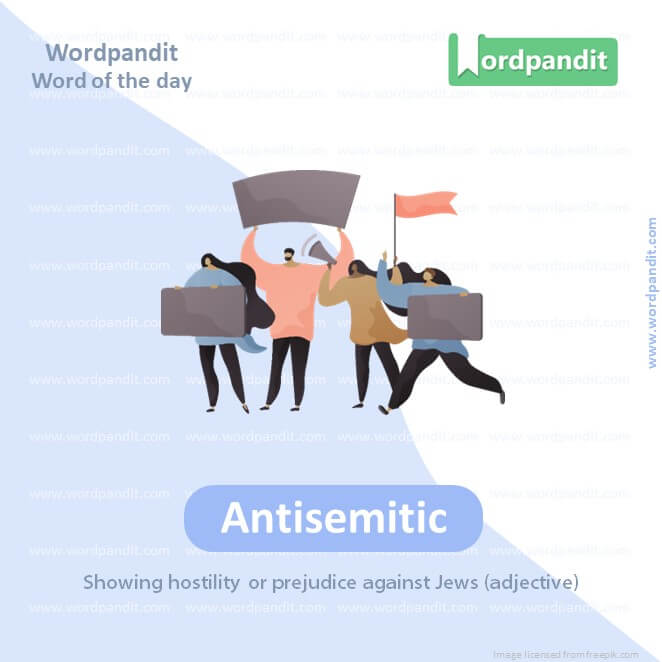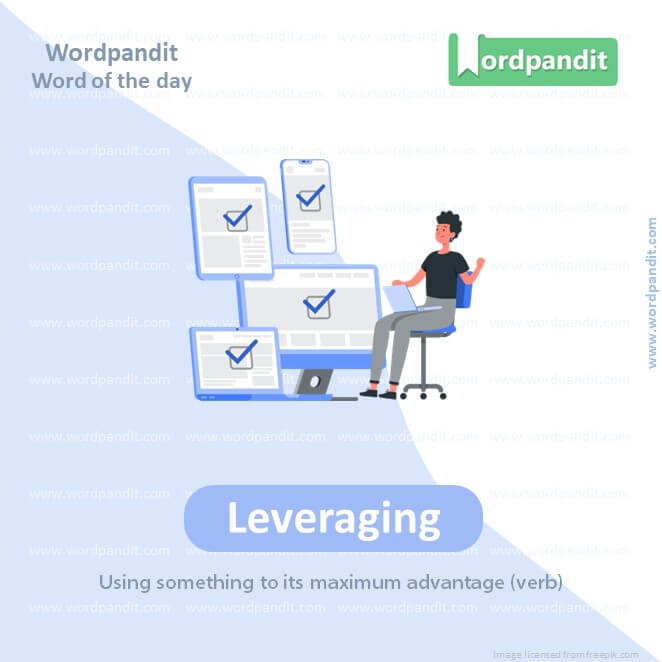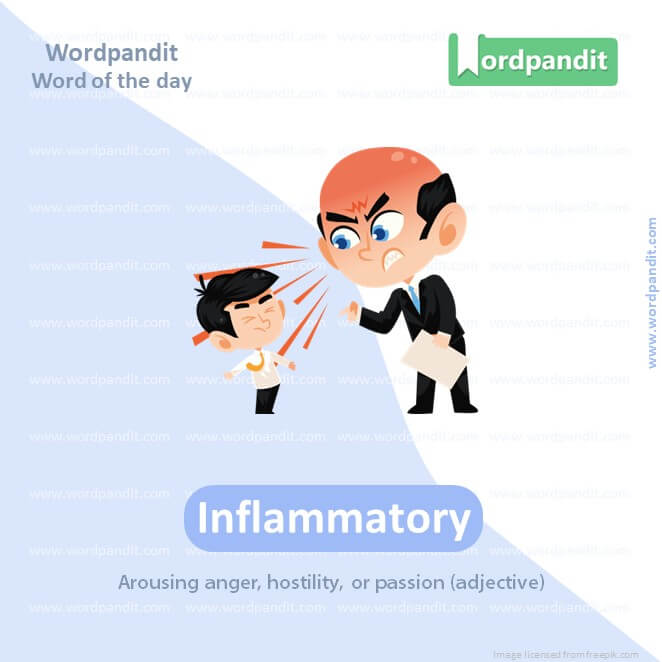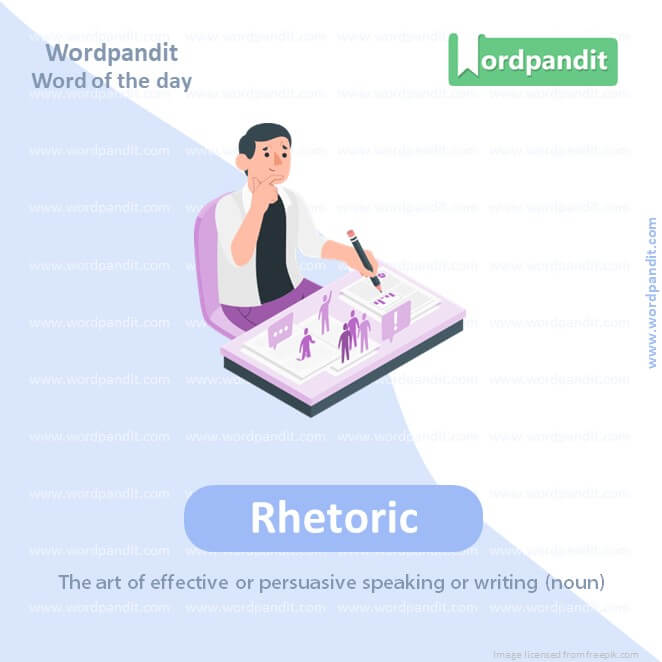Daily Vocabulary Words: List of Daily Used Words in Leading International Newspapers
Hi there. Welcome to this special section @ Wordpandit.
Our endeavour here is very simple: to highlight important daily vocabulary words, which you would come across in leading newspapers in the country. We have included the following newspapers in our selection:
• The New York Times
• The Washington Post
• Scientific American
• BBC
• The Guardian
• Psychology Today
• Wall Street Journal
• The Economist
We are putting in extensive work for developing your vocabulary. All you have got to do is be regular with this section and check out this post on a daily basis. This is your repository of words that are commonly used and essentially, we are posting a list of daily used words. Hence, this has significant practical application as it teaches you words that are used commonly in leading publications mentioned above.
Visit the website daily to learn words from leading international newspapers.

WORD-1: Antisemitic
CONTEXT: Antisemitic and Islamophobic hate is surging most dramatically online. A recent New York Times article reported that online hate has spiked on mainstream social media platforms like X (formerly Twitter), Facebook and Instagram, with most of the hateful antisemitic and Islamophobic content appearing on X. Far-right users of Telegram and 4chan have been leveraging the current conflict, the report noted, as an opportunity to spread antisemitic and Islamophobic rhetoric.
EXPLANATORY PARAGRAPH: Antisemitic means being unkind or unfair to Jewish people. It’s like if someone didn’t like someone else just because they have different beliefs or come from a different group. That’s not nice and it’s important to treat everyone fairly.
MEANING: Showing hostility or prejudice against Jews (adjective).
PRONUNCIATION: an-ti-se-mit-ik
SYNONYMS: Prejudiced, bigoted, discriminatory, racist, hateful, intolerant, unfair.
USAGE EXAMPLES:
1. The antisemitic remarks made by the politician caused an uproar.
2. Teaching about the Holocaust helps combat antisemitic attitudes.
3. Antisemitic graffiti was found on the walls of the synagogue.
4. The community united to support their Jewish neighbors against antisemitic threats.

WORD-2: Islamophobic
CONTEXT: Antisemitic and Islamophobic hate is surging most dramatically online. A recent New York Times article reported that online hate has spiked on mainstream social media platforms like X (formerly Twitter), Facebook and Instagram, with most of the hateful antisemitic and Islamophobic content appearing on X. Far-right users of Telegram and 4chan have been leveraging the current conflict, the report noted, as an opportunity to spread antisemitic and Islamophobic rhetoric.
EXPLANATORY PARAGRAPH: Islamophobic is when someone is not nice or is unfair to people who follow Islam, a religion. It’s like if someone was mean to someone else just because of what they believe in or because they follow different traditions. Everyone deserves respect, no matter what they believe.
MEANING: Having or showing dislike of or prejudice against Islam or Muslims (adjective).
PRONUNCIATION: is-lam-o-fo-bik
SYNONYMS: Prejudiced, bigoted, discriminatory, racist, intolerant, hateful, unfair.
USAGE EXAMPLES:
1. The campaign aimed to raise awareness about the harm of Islamophobic behavior.
2. She gave a speech on the dangers of Islamophobic rhetoric in society.
3. Islamophobic incidents have increased in recent years.
4. The community organized an event to stand against Islamophobic attitudes.

WORD-3: Leveraging
CONTEXT: Antisemitic and Islamophobic hate is surging most dramatically online. A recent New York Times article reported that online hate has spiked on mainstream social media platforms like X (formerly Twitter), Facebook and Instagram, with most of the hateful antisemitic and Islamophobic content appearing on X. Far-right users of Telegram and 4chan have been leveraging the current conflict, the report noted, as an opportunity to spread antisemitic and Islamophobic rhetoric.
EXPLANATORY PARAGRAPH: Leveraging is like using something you have to help you do something else. Imagine you have a big stick and you use it to move a heavy rock. The stick helps you do something you couldn’t do alone. Leveraging is like that, but with things like ideas or money.
MEANING: Using something to its maximum advantage (verb).
PRONUNCIATION: lev-er-ij-ing
SYNONYMS: Utilizing, exploiting, capitalizing, employing, making use of, harnessing, applying.
USAGE EXAMPLES:
1. The company is leveraging its brand to expand into new markets.
2. She is leveraging her experience to secure a better job.
3. Leveraging technology can improve efficiency.
4. They are leveraging social media to promote their products.

WORD-4: Inflammatory
CONTEXT: Hate speech then flowed freely. Throughout the 2016 presidential campaign, candidates (including, but not limited to, then-candidate Donald Trump) openly engaged in inflammatory rhetoric, often targeting Muslim communities. Extremist white nationalist rhetoric also became more explicit and commonplace. Contemporaneously, offline hate crimes soared against minority communities, particularly against Jews and Muslims. This was never more apparent than following the start of the Trump presidency, when in 2017, antisemitic incidents saw their largest single-year increase on record, at nearly 60 percent higher than in 2016, and Islamophobic abuse rose 91 percent in the first half of 2017. All of this appeared to come to a head in August 2017 at the Unite the Right rally in Charlottesville, Va., which marked a significant escalation in public, organized, far-right extremist activity in the U.S.
EXPLANATORY PARAGRAPH: Inflammatory is like saying or doing things that make others very upset or angry, like poking a fire to make it bigger. It’s not just being a little mean; it’s doing something that can cause a big reaction or argument.
MEANING: Arousing anger, hostility, or passion (adjective).
PRONUNCIATION: in-flam-ma-tor-ee
SYNONYMS: Provocative, incendiary, agitating, stirring, provoking, irritating, instigating.
USAGE EXAMPLES:
1. The politician’s inflammatory speech caused a lot of controversies.
2. Inflammatory comments on social media can lead to heated debates.
3. The article was criticized for its inflammatory language.
4. Avoid inflammatory topics during family gatherings.

WORD-5: Rhetoric
CONTEXT: Hate speech then flowed freely. Throughout the 2016 presidential campaign, candidates (including, but not limited to, then-candidate Donald Trump) openly engaged in inflammatory rhetoric, often targeting Muslim communities. Extremist white nationalist rhetoric also became more explicit and commonplace. Contemporaneously, offline hate crimes soared against minority communities, particularly against Jews and Muslims. This was never more apparent than following the start of the Trump presidency, when in 2017, antisemitic incidents saw their largest single-year increase on record, at nearly 60 percent higher than in 2016, and Islamophobic abuse rose 91 percent in the first half of 2017. All of this appeared to come to a head in August 2017 at the Unite the Right rally in Charlottesville, Va., which marked a significant escalation in public, organized, far-right extremist activity in the U.S.
EXPLANATORY PARAGRAPH: Rhetoric is the way people use words to persuade or influence others. It’s like when someone tells a story or gives a speech in a way that makes you really believe them or agree with them, even if it’s just how they say it.
MEANING: The art of effective or persuasive speaking or writing (noun).
PRONUNCIATION: rhet-or-ik
SYNONYMS: Eloquence, oratory, persuasion, discourse, expression, articulation, diction.
USAGE EXAMPLES:
1. The candidate’s rhetoric appealed to many voters.
2. She is known for her powerful rhetoric on environmental issues.
3. The rhetoric used in the advertisement was very convincing.
4. Political rhetoric can often be misleading.
WORD-6: Contemporaneously
CONTEXT: Hate speech then flowed freely. Throughout the 2016 presidential campaign, candidates (including, but not limited to, then-candidate Donald Trump) openly engaged in inflammatory rhetoric, often targeting Muslim communities. Extremist white nationalist rhetoric also became more explicit and commonplace. Contemporaneously, offline hate crimes soared against minority communities, particularly against Jews and Muslims. This was never more apparent than following the start of the Trump presidency, when in 2017, antisemitic incidents saw their largest single-year increase on record, at nearly 60 percent higher than in 2016, and Islamophobic abuse rose 91 percent in the first half of 2017. All of this appeared to come to a head in August 2017 at the Unite the Right rally in Charlottesville, Va., which marked a significant escalation in public, organized, far-right extremist activity in the U.S.
EXPLANATORY PARAGRAPH: Contemporaneously means something happening at the same time as something else. Like when you are playing with your toys and your friend is playing with theirs at the same time. Both of you are playing contemporaneously.
MEANING: Occurring or existing during the same period of time (adverb).
PRONUNCIATION: con-temp-o-ray-nee-us-lee
SYNONYMS: Simultaneously, concurrently, at the same time, together, alongside, in unison, side by side.
USAGE EXAMPLES:
1. The two events occurred contemporaneously.
2. The artist’s work was influenced by events happening contemporaneously.
3. Several authors were writing about similar topics contemporaneously.
4. The experiments were conducted contemporaneously in different laboratories.
WORD-7: Escalation
CONTEXT: Hate speech then flowed freely. Throughout the 2016 presidential campaign, candidates (including, but not limited to, then-candidate Donald Trump) openly engaged in inflammatory rhetoric, often targeting Muslim communities. Extremist white nationalist rhetoric also became more explicit and commonplace. Contemporaneously, offline hate crimes soared against minority communities, particularly against Jews and Muslims. This was never more apparent than following the start of the Trump presidency, when in 2017, antisemitic incidents saw their largest single-year increase on record, at nearly 60 percent higher than in 2016, and Islamophobic abuse rose 91 percent in the first half of 2017. All of this appeared to come to a head in August 2017 at the Unite the Right rally in Charlottesville, Va., which marked a significant escalation in public, organized, far-right extremist activity in the U.S.
EXPLANATORY PARAGRAPH: Escalation is like when something small grows bigger and bigger, like a snowball rolling down a hill. It can be used to describe situations that become more serious or intense, like a small argument turning into a big fight.
MEANING: An increase in the intensity or seriousness of something; an intensification (noun).
PRONUNCIATION: es-ca-lay-shun
SYNONYMS: Increase, intensification, expansion, growth, amplification, augmentation, surge.
USAGE EXAMPLES:
1. The escalation of the conflict worried the international community.
2. There was a rapid escalation in prices.
3. The argument led to an escalation of tensions between the two groups.
4. Efforts were made to prevent further escalation of the situation.
WORD-8: Triangulated
CONTEXT: Our research triangulated across multiple databases to examine hate against Muslims and Jews on fringe platforms online and in its real-world manifestations. We included discussions held on 4chan, Gab and Reddit, both fringe and mainstream, as well as hate crime databases maintained by the Anti-Defamation League, Council on American Islamic Relations and the FBI, in the analysis.
EXPLANATORY PARAGRAPH: Triangulated is like drawing lines between three different points to make a triangle. It’s a way of figuring something out by looking at it from three different places or perspectives. It’s like connecting dots to see the bigger picture.
MEANING: Using three different points or sources to come to a conclusion (verb).
PRONUNCIATION: tri-an-gu-lay-ted
SYNONYMS: Connected, interlinked, coordinated, mapped, pinpointed, integrated, networked.
USAGE EXAMPLES:
1. The researchers triangulated data from different sources.
2. He triangulated his position using the map and landmarks.
3. Triangulated methods were used to verify the results.
4. The detective triangulated the clues to solve the mystery.
WORD-9: Manifestations
CONTEXT: Our research triangulated across multiple databases to examine hate against Muslims and Jews on fringe platforms online and in its real-world manifestations. We included discussions held on 4chan, Gab and Reddit, both fringe and mainstream, as well as hate crime databases maintained by the Anti-Defamation League, Council on American Islamic Relations and the FBI, in the analysis.
EXPLANATORY PARAGRAPH: Manifestations are like the different ways something can show up or appear. It’s like when you feel happy, you might smile or jump up and down. Your happiness is there in different ways – your smile and your jumping are manifestations of it.
MEANING: Display or signs of the presence or existence of something (noun).
PRONUNCIATION: man-i-fes-tay-shuns
SYNONYMS: Indications, signs, expressions, demonstrations, exhibitions, displays, symptoms.
USAGE EXAMPLES:
1. The manifestations of the disease include fever and fatigue.
2. Artistic manifestations are diverse in different cultures.
3. Public protests are a manifestation of social discontent.
4. He studied the manifestations of climate change in the region.
WORD-10: Fringe
CONTEXT: Our research triangulated across multiple databases to examine hate against Muslims and Jews on fringe platforms online and in its real-world manifestations. We included discussions held on 4chan, Gab and Reddit, both fringe and mainstream, as well as hate crime databases maintained by the Anti-Defamation League, Council on American Islamic Relations and the FBI, in the analysis.
EXPLANATORY PARAGRAPH: Fringe is like the edge or border of something, but it’s not just a regular edge. It’s a part that is different, like the tassels on the edge of a rug. It can also mean things that are not common or usual, like ideas or groups that are not like what most people think or do.
MEANING: Not part of the mainstream; unconventional, peripheral, or extreme (noun, adjective).
PRONUNCIATION: frinj
SYNONYMS: Edge, margin, periphery, outskirts, alternative, unusual, non-mainstream.
USAGE EXAMPLES:
1. The artist was part of the fringe art movement.
2. They discussed fringe theories in the meeting.
3. The festival included performances from fringe theater groups.
4. His ideas were considered to be on the fringe of scientific research.
Vocabulary 100 Words
Diving into the exciting waters of language learning, encountering a list of ‘vocabulary 100 words’ is a common step. These lists, often tailored to specific proficiency levels or topics, present microcosms of the language, cradling essential words that broaden our linguistic comprehension. However, to effectively grasp ‘vocabulary 100 words’, a well-crafted strategy is imperative.
The cornerstone of learning any ‘vocabulary 100 words’ lies in understanding each word with depth. This involves more than just registering the meaning. It extends to understanding its use in different contexts, its nuances, and its connotations.
When navigating ‘vocabulary 100 words’, pacing is extremely important. Rather than trying to absorb all the words at once, a steady approach of learning a few words every day promotes better retention. This assures your brain is not overwhelmed with information, resulting in more effective learning.
Interactivity adds a significant boost while engaging with ‘vocabulary 100 words’. Employ tools like flashcards or digital language-learning apps to make your learning experience more engaging. Regular tests or quizzes provided by these platforms can be beneficial in gauging your progress and identifying areas that need additional work.
Real-world usage significantly enriches understanding of ‘vocabulary 100 words’. Incorporate the words into your daily conversations, writing, or social media interactions. This practice element not only empowers retention but also bolsters your confidence in using these words correctly.
In conclusion, mastering ‘vocabulary 100 words’ is an enriching journey that calls for systematic learning, paced approach, engaging tools, and practical application. As you venture down this path, you’ll find the ‘vocabulary 100 words’ transforming from daunting lists into friendly allies, accompanying you on your thrilling linguistic exploration.













